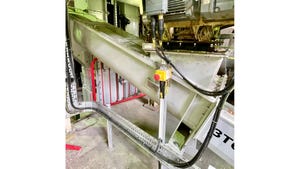December 3, 2012
Tri-Mer Corp., a developer of advanced technologies for the control of NOx, fine particulate, and industrial gases, and Enginuity Energy LLC, a renewable energy company and holder of patented Ecoremedy gasification technology, have established a research agreement for the testing of biomass fuels at Enginuity Energy’s research and development lab in Harrisburg, PA.
The agreement gives Tri-Mer Corp. access to Enginuity Energy’s Ecoremedy gasification technology, which economically gasifies a wide range of extremely high moisture and high ash content material; Enginuity Energy LLC will have access to Tri-Mer’s patented UltraCat catalyst filter system, which removes NOx, acid gases and particulate, also dioxins, in one system. The companies will conduct extensive air emission testing on a wide range of biomass fuels.
“We are excited to be working with the technology leader in emissions control” said David Mooney, Enginuity Energy’s chairman and chief technology officer. “With the addition of the UltraCat Technology to our low emission gasifier, we will be able to guarantee our clients the cleanest emissions in the industry.”
John Pardell, president of Tri-Mer Corp., noted, “The fuel-versatile Ecoremedy gasifier offers us a terrific opportunity to demonstrate the superior filtration capabilities of the UltraCat Filtration System on a wide variety of materials.”
Tri-Mer Corp. is a technology company specializing in advanced air pollution control systems. It is widely respected for the breadth and scope of its R&D programs, which have yielded several groundbreaking developments, including two for the cost-effective control of multiple-contaminant emission streams.
Enginuity Energy is commercializing its proprietary Ecoremedy energy and nutrient recovery technology – a unique waste-to-value thermal gasification system. The company's solutions focus on available waste feedstock, which is often highly variable, high ash, high moisture, or low BTU. The resulting technology is suited for deployment as a distributed energy and nutrient source where inexpensive traditional fuels and/or grid access is unavailable.
You May Also Like


